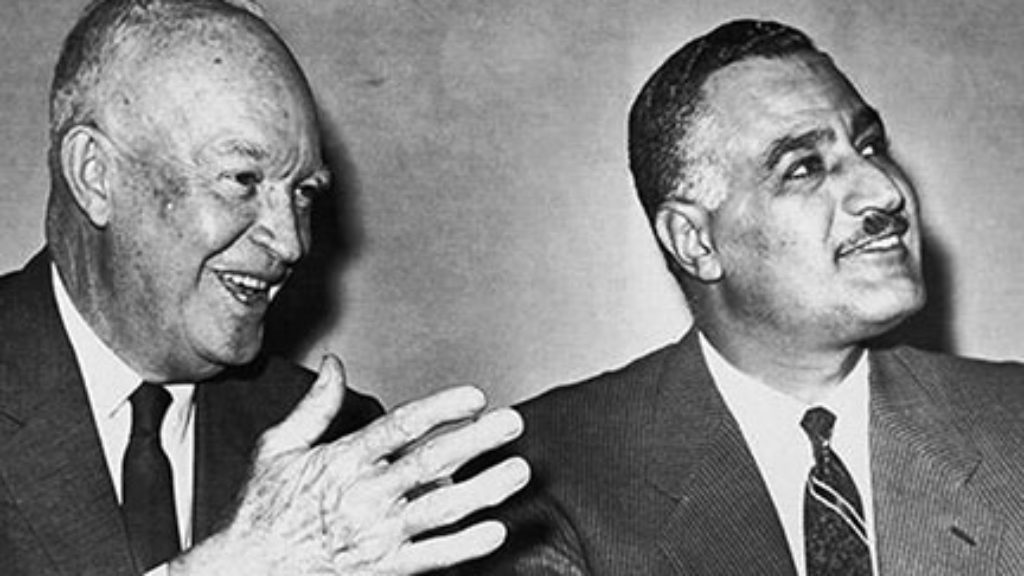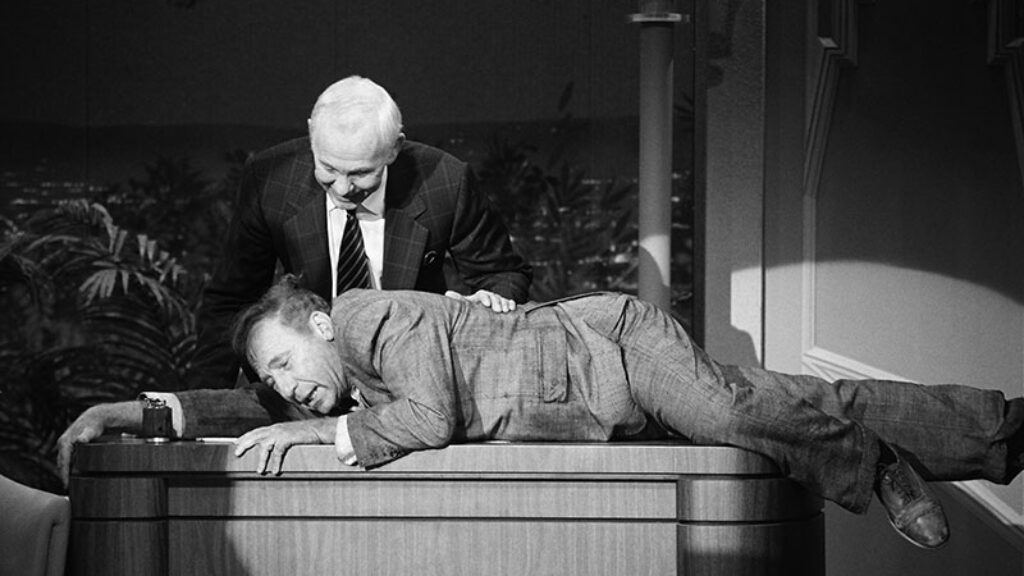Letters, Spring 2013
Perpetual Peace?
In “Kissinger, Kant, and the Syrians” (Winter 2013) Shlomo Avineri describes an incident in which I criticized Kant in the prelude to a diplomatic discussion over the Syrian-Lebanese crisis of 1975. I have no recollection of that conversation now some forty years old, which is presented as more conceptual than substantive.
I have high regard for Avineri. His account of the diplomatic issues posed by the Lebanese crisis seems reasonable. But the philosophical byplay sounds strange. Avineri says I used On Perpetual Peace as a foil to its lack of realism and as a lead-in to discussing Hegel’s view on war. My first tutorial essay at Harvard was a sympathetic treatment of Kant. My undergraduate thesis was importantly devoted to Kant. I have quoted the essence of Kant’s essay On Perpetual Peace on several occasions, including in the conclusion of my last book, On China, always sympathetically. As for comparing Hegel’s to Kant’s view on war, it would be difficult for me to bring this off considering that I have never been attracted to Hegel. Nor have I ever seriously considered his view on war; I would have trouble even defining it.
What Avineri ascribes to me are respectable views, even if I do not recognize them as my own.
Henry A. Kissinger
New York, NY
Shlomo Avineri Responds:
As a great admirer of Henry Kissinger’s statecraft and writings, I am encouraged that he agrees with my assessment of the policies pursued by the United States and Israel regarding Syria’s incursion into Lebanon in the 1970s. This is another example of the strategic cooperation that has been the bedrock underpinning relations between our two nations.
On the other hand, I am not surprised that our recollections differ on the brief, extra-curricular exchange on Kant and Hegel, which emerged quite accidentally when I presented the secretary of state with a Hebrew translation of Kant’s On Eternal Peace. Memories naturally diverge, especially after almost forty years. Future historians—if they deem this interesting enough to research—will have to compare our recollections with what, if anything, survives in the archives.
I have no doubt that like any scion of the Enlightenment, Kissinger reveres Kant’s essay as a shining example of humankind’s striving for its loftiest goals; this comes out in the cryptic reference to it in his concluding remarks in On China. Yet as a political practitioner, responsible for life-and-death decisions, he knew that in this as-yet-unredeemed world one cannot limit oneself to what Hegel called the “Seinsollendes,” i.e., what should be, as opposed to what is. In this Kissinger wisely followed the sage advice of Metternich, whom he quotes approvingly in his magisterial 1994 study Diplomacy.
“Little given to abstract ideas, we accept things as they are and we attempt to the maximum of our ability to protect ourselves against delusions about realities.” And, “with phrases which on close examination dissolve into thin air, such as the defense of civilization, nothing tangible can be defined.”
I came across this passage while preparing my Introduction to the Hebrew translation of Diplomacy: It was obvious to me that Kissinger realized that even while one should follow Kant’s vision as an ideal horizon, prudence, responsibility, and humanity may call for a less exalted approach to questions of politics in the here and now. We all owe much to the former secretary of state for his willingness to bear the burden inherent in such choices.
People of the Book
Haym Soloveitchik’s review of Talya Fishman’s Becoming the People of the Talmud, winner of the Nahum M. Sarna Memorial National Jewish Book Award for Scholarship, raises an important issue (“The People of the Book-Since When?” Winter 2013). It seems to me that in the future, each book award should list the names of its judges.
Bernard Scharfstein
KTAV Publishing House, Inc.
Jersey City, NJ
As a student of Professor Talya Fishman at the University of Pennsylvania, I was horrified when I read Professor Haym Soloveitchik’s review of Becoming the People of the Talmud. I know Professor Fishman to be a serious and cautious scholar, and the accusations lodged at the book and Fishman by Soloveitchik seemed unbelievable.
It is not my business to defend Fishman’s thesis here as I have not yet finished reading the book and I am not a scholar. Furthermore, I am certain Fishman will respond to the critiques with erudition and her characteristic grace and certainly does not need my help. However, I am disappointed at the choice of the editors to publish, or to at least neglect to tone down, a review with so much invective that it blurred the line between legitimate critique and ad hominem attack. Let me emphasize that I believe mistakes could have been made (Fishman would be the first to admit that she is not perfect), but publishing a review like Soloveitchik’s is unbecoming of any serious publication.
Much like Pete Wells’ review of Guy Fieri’s restaurant in The New York Times in November 2012, this review has brought the Jewish Review of Books some cheap social media attention. One claim that sparked the delight of some on Facebook was, “I spent considerable time trying to reconstruct Dr. Fishman’s thinking, to see where and how she went astray in understanding the sources, until I realized that misunderstanding requires partial understanding. If this fractional comprehension is lacking, there are no parameters limiting the interpretation; the meaning of the source will then be whatever the writer wishes it to mean, or, absent this bias, whatever comes to mind.” Professor Soloveitchik presents no evidence for this contention; indeed it would be impossible to prove. Psychoanalysis like this does not help anybody understand the book or its apparent problems and has no place in a review of any kind.
Isaac Setton
University of Pennsylvania, Class of 2012
Philadelphia, PA
When reading a negative book review, one often comes away wishing the reviewer is just catty or has ill intent or ad hominem attacks. Why not just turn down the review rather than embarrass an author so publicly? Prof. Haym Soloveitchik’s scathing review of Becoming the People of the Talmud has no such stench. Even someone with a minimal knowledge of the Talmud can understand his points about its history and composition. How can such errors pass muster at a reputable university press? Isn’t there knowledgeable peer review and footnote checking?
Then, are there answers to Prof. Soloveitchik’s points on how the Jewish Book Council could award a major honor to such a flawed volume? Do other respected Talmud scholars support or disagree with Prof. Soloveitchik’s perceptions, and why?
Les Bergen
Arlington, VA
In the Winter 2013 issue of your magazine, to which I am a relatively new subscriber, you ran a long article by Haym Soloveitchik. The topic is far above my head and I do not have the chutzpah to comment or express any opinion on the merits of his arguments. However, I was shocked by the way the article concluded. The tone, the wording, and the expressions are uncivilized and un-Jewish.
I would like to take the liberty of strongly suggesting that Professor Fishman be invited to present her case. In this way the reputation of the magazine will not only survive but will be enhanced.
Iuliu Hescovici
Vicksburg, MS
In his review of Talya Fishman’s Becoming the People of the Talmud: Oral Torah as Written Tradition in Medieval Jewish Cultures, Haym Soloveitchik adverts to our late father, Prof. Nahum M. Sarna, “whose name,” he observes, “graces the prize the Jewish Book Council awarded” to Fishman’s book. He believes that our father’s memory “deserves better.” We happen to think that our father, who knew Talya Fishman, would have been delighted to see her win the Nahum M. Sarna Memorial Award for Jewish Scholarship. He, like us, had the greatest respect, too, for Haym Soloveitchik, one of the foremost Jewish scholars of our time. What would greatly have saddened him-and saddens us-is the association of Abba’s name, in any form, with whatcan only be described as sinat hinam, groundless animus. The unsupportable assertion that the anonymous judges of the Jewish Book Council award either “never read the book” or “know even less ofrabbinics than does the [award’s] recipient” has no place in a scholarly review.
David E.Y. Sarna
WoodallTech, Inc.
Mahawah, NJ
Jonathan D. Sarna
Joseph H. & Belle R. Braun Professor of American Jewish History
Brandeis University
Waltham, MA
Haym Soloveitchik Responds:
David and Jonathan Sarna describe my concluding remarks about the award committee of the Jewish Book Council as “groundless animus.” I would term it outrage rather than animus. The characterization “groundless,” however, puzzles me. I had thought that the 5,000 words that preceded the concluding paragraph spelled out the grounds of that “animus.” As for my remarks about the anonymous judges (whose faces still remain modestly veiled), I am curious to know what Dr. Sarna’s reaction would have been had the Nahum M. Sarna Award for Scholarship been bestowed upon a book in, say, American Jewish history, whose author displayed a comparable understanding of English sources.
On page 47, Talya Fishman responds to our review, followed by Haym Soloveitchik’s rejoinder.
Faith of Our Fathers
Shai Held’s elucidation of Jewish faith that is grounded in anguish and indignation is helpful in understanding the theological choices faced by religious survivors of the Holocaust, who personified the “powerful reasons to believe and powerful reasons not to.” A vivid childhood memory is my father’s explanation for why he chose to remain religious while many of his fellow survivors abandoned the faith: “Of course I had complaints to the riboynoy shel oylom, but if I stopped believing in God, in whom would I believe? In this civilized educated humanity which brought about the destruction?” Although I always comprehended the psychology behind this argument, its Jewish validity escaped me, ad she-drashah ben Held.
Cantor Sam Weiss
Jewish Community Center of Paramus, NJ
Shai Held’s fascinating article (“Wonder and Indignation: Abraham’s Uneasy Faith,” Winter 2013) inspired me to write this poem:
“Is the Palace Illuminated or in Flames?”
Was the palace Abraham once saw
illuminated making him believe that there must be a God
who’d lit its light, or was he filled with awe
by flames a God had kindled to destroy it, which he found so odd-
Why would a God, he asked, be so destructive?-
that he proceeded to find out not who controlled the world but why
He’s as destructive as he is productive
the world His palace like a neighborhood He fails to gentrify.
The problem that confronted Abraham
is one that still confronts us when we look around the world and wonder:
is God around, or is He on the lam,
feeling burned when watching people burn what turned into a blunder.
Gershon Hepner
Los Angeles, CA
Isaiah Berlin’s Hunchbacks
Joshua Cherniss’s thoughtful review “It’s Complicated,” (Fall 2012) makes me want to read the Arie M. Dubnov biography of Sir Isaiah Berlin. I was a pupil of his in the late 1950s. His ambivalence about Zionism was the subject of some of our many conversations.
Two comments about what Cherniss says is Sir Isaiah’s “ill-judged analogy” to diasporic Jews as “like people with an obvious physical disability-‘Let us say hunchbacks.'” First, he did not give enough stress to the “Let us say.” It’s a suggestion. Second, as he must know, Isaiah did, Moses Mendelssohn was a hunchback, as were some of his descendants, for example, his granddaughter, Fanny Mendelssohn Hensel, Felix’s sister. This may be the background to Sir Isaiah’s simile.
William Josephson
New York, NY
Joshua Cherniss Responds:
Isaiah Berlin’s hunchback analogy maintains its power to provoke. I suggested that it was “ill-judged” precisely because of its tendency to distract from the larger point Berlin was trying to make. Berlin himself seems to have agreed: his earlier biographer, Michael Ignatieff, suggests that it was partly due to the offense that it caused some readers that he refused to republish the essay in his lifetime. Regarding the origins of the image, Berlin may well have had Mendelssohn in mind; there was also no dearth of images of other hunchbacked Jews in the European imagination. (George Cruikshank’s illustrations of Dickens’ Fagin are among the many grotesque examples.) Ignatieff points to another inspiration, which seems more explicitly connected to Berlin’s point about the futility of trying to escape one’s Jewishness. According to a story of which Berlin was fond, the hunchbacked inventor Charles Steinmetz and the assimilated financier Otto Kahn were walking down the street one day when they passed a synagogue. “I used to go there,” remarked Kahn. “Yes, and I used to be a hunchback,” Steinmetz replied. Whether this makes Berlin’s use of the image more or less objectionable, I leave to the reader. I hope all of this won’t distract from engagement with Berlin’s important reflections on Jewish identity, and I thank Mr. Josephson for his warm recollections of his teacher.
Correction
In Suzanne Garment’s article “With Words We Govern Men,” (Winter 2013), the quote from Benjamin Disraeli used by Ambassador Daniel P. Moynihan was taken (liberally) not from Sybil but from Contarini Fleming.
Suggested Reading

Ike’s Bet and Nasser’s Vasser
Could the hot dog-munching, movie-going young colonel named Nasser have become our man if we had tried harder to accommodate him at the very outset?

History of Mel Brooks: Both Parts
On-screen, Mel Brooks was hysterically funny. Off-screen, he could quickly shift to morose or mean.

Robert Capa’s Road to Jerusalem
By all accounts, his own not least, Robert Capa was a womanizer, a heavy drinker, and a compulsive gambler who consistently lost his shirt everywhere from poker games at the front lines to European casinos. He was also a gifted, prolific photographer.
Says Who?
Peter Berger listened to me patiently, and then he said, “You can come to see me, but”—and here he spoke with heavy emphasis—“it sounds like you have read my books . . . and I haven’t thought of anything new.”
Comments
You must log in to comment Log In